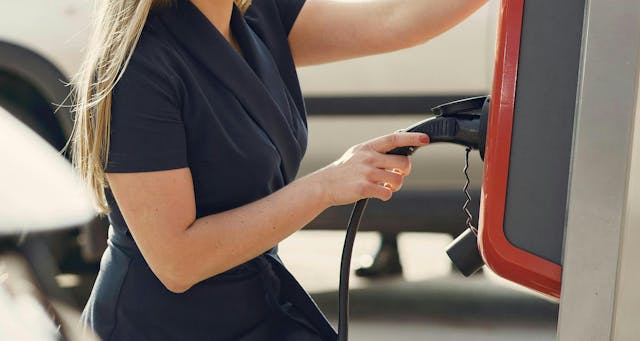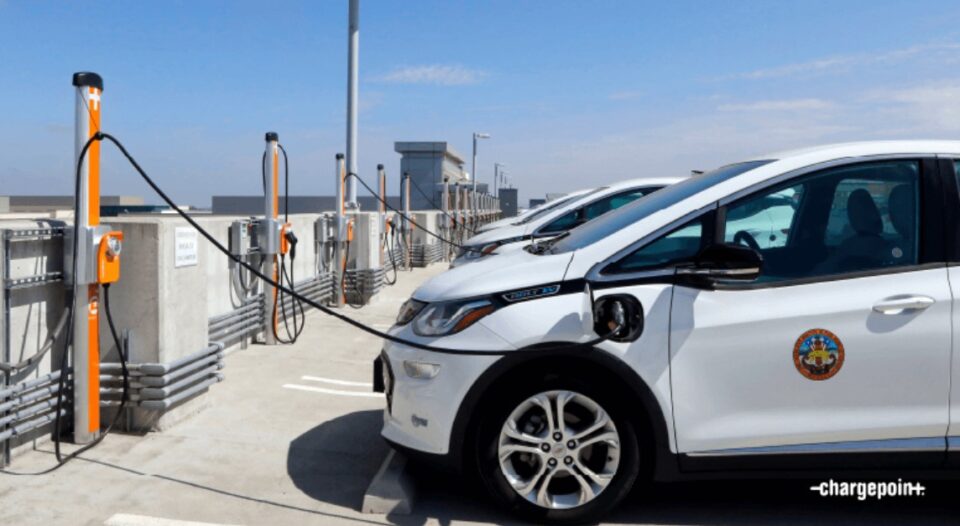Expert Opinions and Market Insights When You Buy EV Charging news
Top EV Charging News: Secret Updates on Infrastructure and Advancement

Recent Improvements in Fast-Charging Modern Technology

Additionally, advancements in battery innovation, consisting of improved thermal administration systems and greater energy density batteries, enhance fast-charging capabilities. These advancements minimize the risk of battery deterioration throughout rapid charging, guaranteeing long life and efficiency for EV owners.
Furthermore, the assimilation of smart charging options is boosting user experience, allowing real-time surveillance and vibrant pricing designs. EV Charging news. This adaptability permits motorists to maximize billing costs and times based on grid need
As car manufacturers remain to purchase fast-charging networks, the partnership between market stakeholders is critical. Collaborations between charging station suppliers and auto manufacturers are paving the way for comprehensive protection, inevitably fostering a more robust EV environment. These improvements are essential in sustaining the shift to sustainable transportation.
Government Initiatives for Charging Expansion
Government initiatives play a crucial role in the expansion of electric vehicle (EV) charging infrastructure, helping with the transition to sustainable transportation. Various government and state programs are being applied to boost billing availability, minimize the economic worry on consumers, and promote the fostering of electrical lorries.
Notably, the united state federal government has actually designated substantial financing with the Infrastructure Investment and Jobs Act, which sets aside $7.5 billion for EV charging network development throughout the nation. This funding is focused on deploying thousands of brand-new charging terminals, specifically in underserved locations, thus addressing array stress and anxiety among prospective EV buyers.
In addition, many states are enacting regulation to improve the allowing process for billing station installments, which is crucial for speeding up deployment. Motivations such as tax credits and refunds for both consumers and services are also being introduced to urge the setup of billing infrastructure.
In addition, public-private partnerships are significantly becoming an emphasis, leveraging private investment to enhance government funding. These campaigns underscore a collective strategy vital for constructing a efficient and detailed EV billing network, ultimately adding to a greener and even more sustainable future.
Ingenious Battery Solutions Enhancing Performance
Transforming the landscape of electrical car (EV) modern technology, innovative battery services are dramatically improving performance and performance. Developments in battery chemistry, specifically with lithium-sulfur and solid-state batteries, are leading to enhanced energy thickness, which permits for longer ranges and faster charging times. These new battery kinds have the potential to exceed standard lithium-ion batteries by supplying higher abilities while lowering weight, thereby improving overall car effectiveness.
Additionally, growths in battery monitoring systems (BMS) are maximizing power usage and prolonging battery life expectancy. Smart algorithms monitor battery health and efficiency, allowing real-time changes to charging and releasing procedures. This not just improves the effectiveness of the battery however also guarantees a more sustainable and dependable energy resource for EVs.
In addition, the combination of recycling technologies is addressing the ecological effect of battery production and disposal. Innovations in second-life applications for EV batteries are promoting their use in energy storage space systems, contributing to a circular economic situation.
As these ingenious battery services remain to advance, they guarantee to transform the EV market, making electrical cars more appealing and obtainable to a wider audience while sustaining worldwide sustainability objectives.

Partnership In Between Automakers and Billing Networks
Identifying the crucial requirement for a durable charging facilities, car manufacturers are significantly teaming up with billing network providers to enhance the EV ownership experience (EV Charging news). These partnerships aim to develop a seamless site here billing ecosystem that profits customers and sustains the shift to electric cars
Major automotive brand names are signing up with pressures with well established charging networks to expand their billing terminal protection, guaranteeing chauffeurs have access to convenient and trusted billing choices. Partnerships with networks like ChargePoint and Electrify America permit automakers to integrate billing options directly into their lorries' navigation systems, directing users to the nearest terminals and supplying real-time availability updates.
In addition, these partnerships typically lead to the development of fast-charging modern technologies that significantly lower the time needed to charge an EV. By pooling resources and knowledge, automakers and billing networks can innovate much faster, creating remedies that meet the expanding need for electric wheelchair.
Additionally, joint efforts might also result in more standard billing protocols, which can ease customer confusion and promote wider EV fostering. In general, these calculated partnerships are pivotal in developing a easy to use and effective billing framework that meets the requirements of an increasing electrical vehicle market.
Difficulties Dealing With EV Billing Framework
As the electric vehicle market continues to grow, a number of obstacles are appearing that prevent the development of an extensive charging facilities. Among the key barriers is the not enough number of billing terminals, particularly in underserved and rural urban areas. This space produces variety stress and anxiety among prospective EV purchasers, hindering them from making the button.
Furthermore, the lack of standardization in billing innovation complicates the framework landscape. Variants in plug types and billing speeds can create complication for users and increase functional intricacies for charging network drivers.
One more pressing concern is the high expense connected with the installment and maintenance of billing stations, which can be an obstacle for both public entities and exclusive services. Regulatory obstacles and zoning restrictions can postpone the deployment of billing infrastructure, hampering progress in broadening essential services. Addressing these difficulties will certainly be essential for cultivating a robust visit our website EV community that sustains the transition to sustainable transport.
Conclusion
Finally, the recurring innovations in EV charging technology, supported by considerable federal government efforts and cutting-edge battery remedies, are essential for the expansion and effectiveness of electric automobile facilities. Partnerships in between car manufacturers and billing providers even more improve station protection, dealing with the expanding need for easily accessible billing choices. In spite of difficulties that continue within the EV charging landscape, these developments signify a favorable trajectory in the direction of an extra lasting more info here and effective electrical lorry ecological community.
Technologies in billing facilities have led to the growth of ultra-fast battery chargers capable of delivering up to 350 kW of power, significantly reducing billing times. Variations in plug types and billing speeds can create complication for individuals and enhance operational intricacies for charging network operators.In verdict, the continuous advancements in EV billing innovation, supported by substantial federal government initiatives and cutting-edge battery options, are important for the expansion and performance of electric vehicle framework. Partnerships between car manufacturers and charging carriers additionally enhance terminal protection, addressing the expanding demand for obtainable charging alternatives. In spite of challenges that continue within the EV charging landscape, these advancements signify a favorable trajectory towards a much more reliable and sustainable electrical lorry environment.